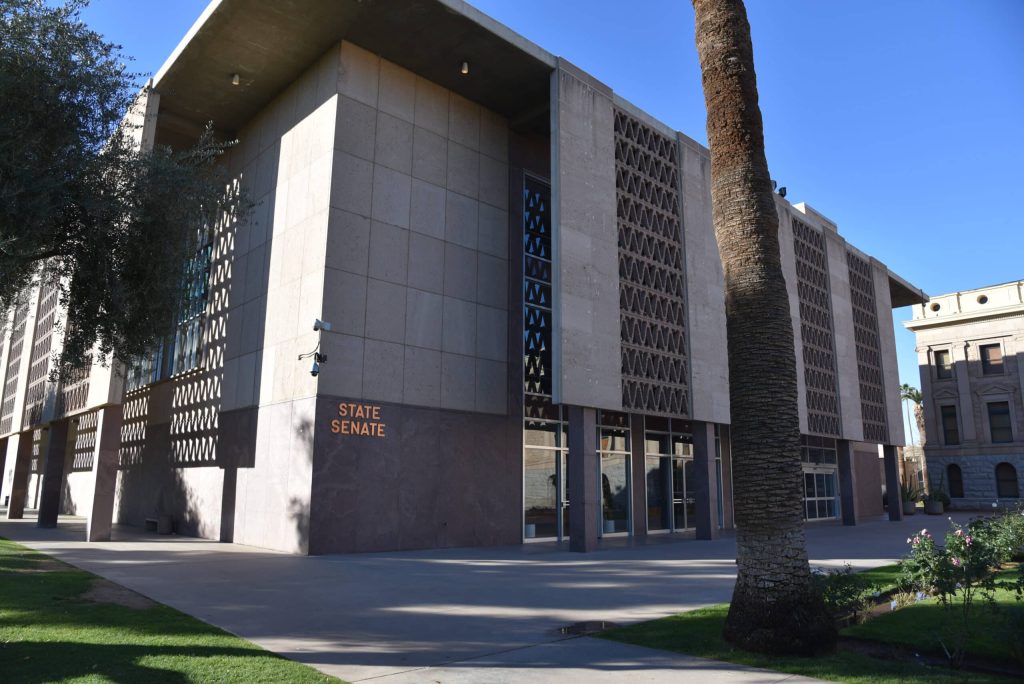In the Arizona Legislature, the landscape can change quickly. About a month ago, we noted that Arizona’s current legislative season was a fairly quiet one for state planning and elder law purposes. Not so much anymore.
Though the First Regular Session of the 56th Arizona Legislature was scheduled to wrap up April 22, lawmakers are still at it. They’ve recessed, for now, but are scheduled to return June 12, and some important issues for guardianships and conservatorships will be considered by the Senate and quite probably Governor Katie Hobbs.
Change 1: Probate Advisory Panel
But first, an update on a bill we mentioned in April that has already been decided. SB1038, which provides for a “Probate Advisory Panel,” passed both houses, and Gov. Hobbs signed it May 8, 2023. It creates a team of individuals who are to hold public hearings at least quarterly to explore how to “improve the adult guardianship and conservatorship laws through statutory changes.” The Panel is to comprise five professionals from the G/C arena, four “public” members who serve as guardians or conservators for family members, and two “advocates for family members” involved in the system. (If you are counting, those who know the system from the inside out are outnumbered 6-5.) Because no funding has been provided, it’s unclear whether it’s possible for it to move forward to make any changes in any meaningful way.
Change 2: Supported Decision Making
HB 2174, which would add a “supported decision making” alternative to Guardianship or Conservatorship (or agent under power of attorney), is back. The current iteration (the idea has been proposed at least four times over the past few years), barely made a blip in the 56th Arizona legislative session. This was at least partly because the lead sponsor is a Democrat. But as it turns out, Republicans need her vote for the changes they want in Guardianship/Conservatorship statutes. Just after their SB1291 lost a key vote, Republicans regrouped and tacked HB2174 onto their SB1291, to, it seems, secure what looks like bipartisan support for the combined bill.
The former HB2174 (now included in the amended SB1291) creates a new concept under Arizona law. It provides for a “supportive decision-making agreement” under which an adult who has “a physical or mental impairment that substantially limits one or more major life activities” could authorize another adult (the “supporter”) to provide assistance in a number of ways.
What Support Means
Included in the idea of support are “assisting the adult in understanding the options, responsibilities and consequences of the adult’s life decisions, without making those decisions on behalf of the adult”; “assist[ing] the adult in accessing, collecting and obtaining from any person information that is relevant to a given life decision, including medical, psychological, financial, education or treatment records” and assisting the adult in understanding that information; and “assist[ing] the adult in communicating the adult’s decisions to appropriate persons.”
The law obviously is intended to empower adults with impairments to make their own decisions, which is unquestionably a worthy goal. But some believe legislation is not necessary. After all, if a person can make decisions, they can appoint an agent under power of attorney to help them – or just ask loved ones or professionals for assistance. Some even believe formalizing “supporter” authority could be dangerous and serve as an invitation for exploitation. Questions about capacity and undue influence could lead to litigation.
Change 3: Guardianship/Conservatorship
SB1291 made it through the Senate and the House, where lawmakers tacked on supported decision making. It now has returned to the Senate for further consideration before heading to the Governor.
Changes to probate and guardianship/conservatorship practice include:
(1) Requiring most notices of hearing to be sent by registered or certified mail rather than regular mail.
(2) Requiring specific, mandatory duties for court-appointed counsel in guardianship and conservatorship matters.
(3) Elevating the significance and priority of agents under powers of attorney as guardian or conservator appointees.
(4) Mandating inclusion of the right to a jury trial in notices of hearing in guardianship and conservatorship matters.
(5) Switching the presumption for contact with a person under guardianship to the guardian, requiring they prove by clear and convincing evidence that contact would be detrimental.
(6) Clarifying that the standard of proof in conservatorship matters is clear and convincing evidence.
Costs Are Likely to Increase
As we noted in April, jury trials would be automatic in guardianships, unless the subject of the proceedings waives the right. Currently, juries are permissible but rarely used. The cost and time will increase, perhaps to the point that few will be able to afford them. (Which may be the goal of the legislation.)
Arizona already requires appointment of an attorney for the alleged incapacitated person in guardianship and conservatorship proceedings. The new law would require that court-appointed attorneys to visit the client at least a week before the hearing. In addition, there’s a list of other explicit duties not previously mandated. Here again costs, usually borne by the subject of the guardianship, will probably increase.
If the changes to SB1291 clear the Senate, the bill will go to the Governor’s desk. There has been some organized opposition. But the new sheen of bipartisanship could mean Gov. Hobbs will be more likely to sign it. We’ll still be watching.




One Response